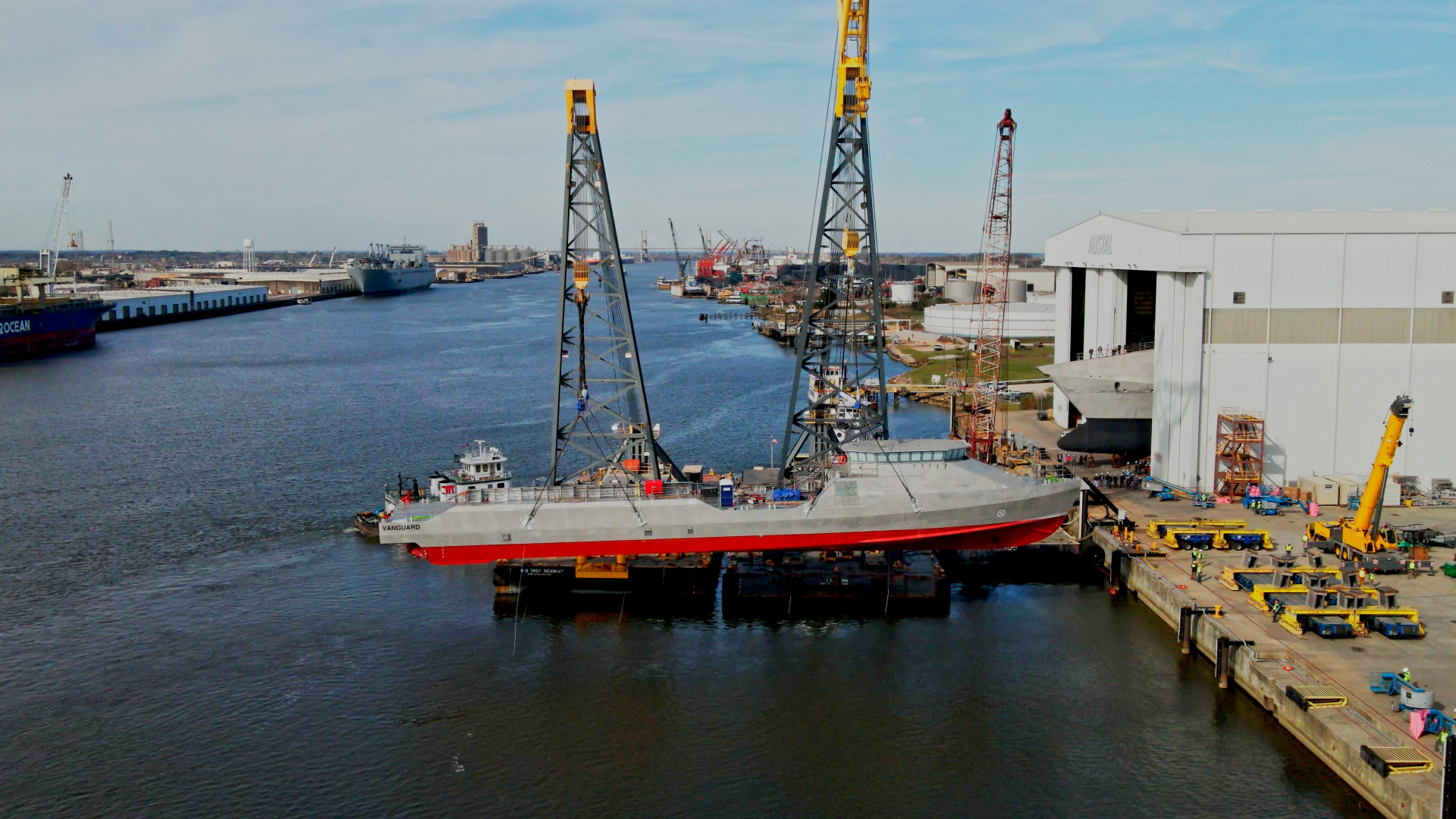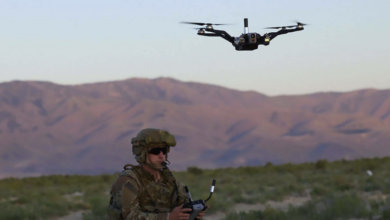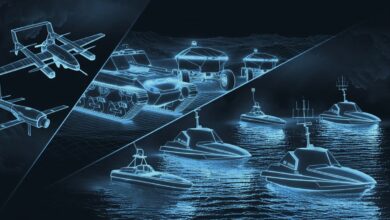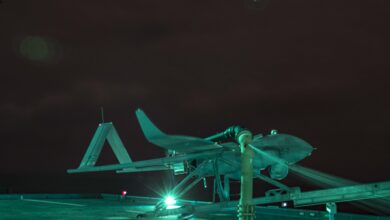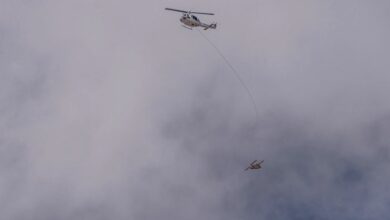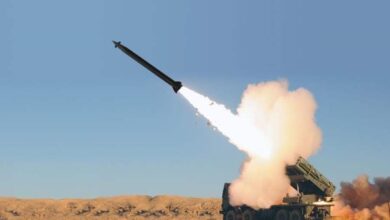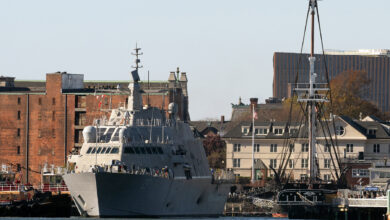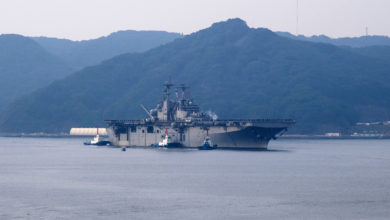The US Navy has christened its third Overlord unmanned surface vessel (OUSV) in Mobile, Alabama.
Named “Vanguard,” the ship is part of the Pentagon’s efforts to employ a “ghost fleet” for naval mission support and other projects exploring autonomous applications at sea.
Designated OUSV3, the Vanguard is the fourth system delivered under the program.
Austal USA constructed the vessel under prime contractor L3Harris. After the Vanguard’s completion, the consortium launched the vehicle at Austal’s Mobile shipyard in January.
The navy wrote that the Vanguard is the first among the four Overlord USVs to incorporate a purpose-built hull, as its sister ships originally had different roles, including oil rig support and patrol boats, before the procurement.
“Vanguard’s name could not be more fitting,” US Navy Unmanned Maritime Systems Manager Capt. Scot Searles said.
“The state-of-the-art technology she will employ is revolutionary and will be at the forefront of establishing new standards for our fleet.”
“We are thrilled to achieve this important milestone and are looking forward to Vanguard leading the way as she enhances our nation’s naval power and strategic capabilities.”
The Overlord Program
According to the US Navy, the Overlord program has already contributed to several unmanned technology projects and military tests across the agency.
In 2021, the US Department of Defense revealed that the first OUSV ship “Ranger” was used in the live-fire demonstration of a three-in-one warhead capable of ballistic missile defense, anti-air warfare, and anti-surface missions.
Other information gathered through the fleet’s aid will be leveraged to develop America’s forthcoming large-class USVs, which are intended to have high endurance, low-cost maintenance, and flexible payload capacity.
“Vanguard represents a significant leap forward in unmanned technology,” Unmanned and Small Combatants Executive Officer Rear Adm. Kevin Smith stated.
“The addition of Vanguard will enable the expansion of unmanned testing, experimentation and development, accelerating the transition to the hybrid fleet.”
Last year, the US Navy tapped industry partner Leidos to operate and maintain the Ranger and the OUSV4 Mariner.

